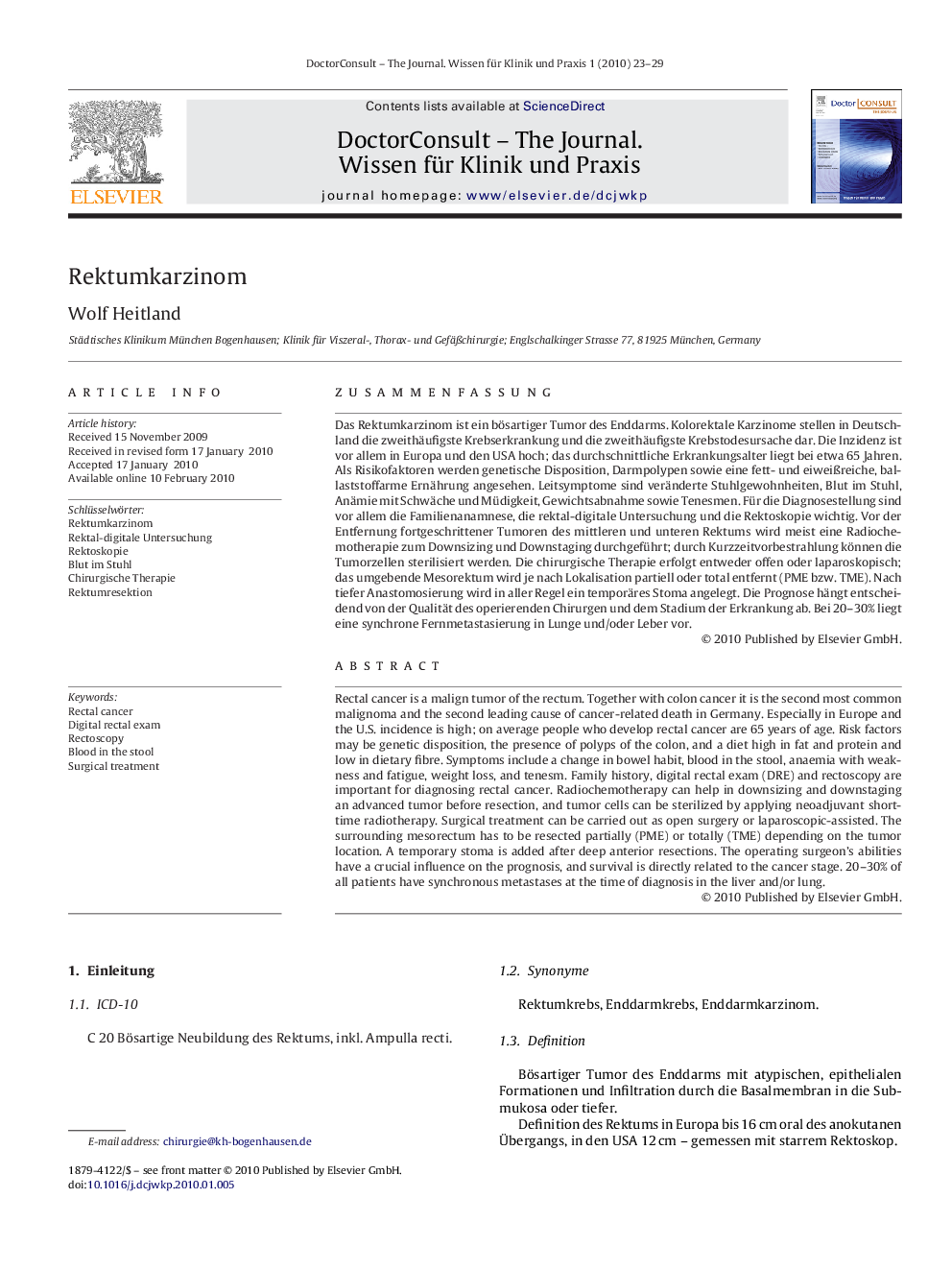| Article ID | Journal | Published Year | Pages | File Type |
|---|---|---|---|---|
| 3464950 | DoctorConsult - The Journal. Wissen für Klinik und Praxis | 2010 | 7 Pages |
Abstract
Rectal cancer is a malign tumor of the rectum. Together with colon cancer it is the second most common malignoma and the second leading cause of cancer-related death in Germany. Especially in Europe and the U.S. incidence is high; on average people who develop rectal cancer are 65 years of age. Risk factors may be genetic disposition, the presence of polyps of the colon, and a diet high in fat and protein and low in dietary fibre. Symptoms include a change in bowel habit, blood in the stool, anaemia with weakness and fatigue, weight loss, and tenesm. Family history, digital rectal exam (DRE) and rectoscopy are important for diagnosing rectal cancer. Radiochemotherapy can help in downsizing and downstaging an advanced tumor before resection, and tumor cells can be sterilized by applying neoadjuvant short-time radiotherapy. Surgical treatment can be carried out as open surgery or laparoscopic-assisted. The surrounding mesorectum has to be resected partially (PME) or totally (TME) depending on the tumor location. A temporary stoma is added after deep anterior resections. The operating surgeon's abilities have a crucial influence on the prognosis, and survival is directly related to the cancer stage. 20-30% of all patients have synchronous metastases at the time of diagnosis in the liver and/or lung.
Related Topics
Health Sciences
Medicine and Dentistry
Medicine and Dentistry (General)
Authors
Wolf Heitland,
